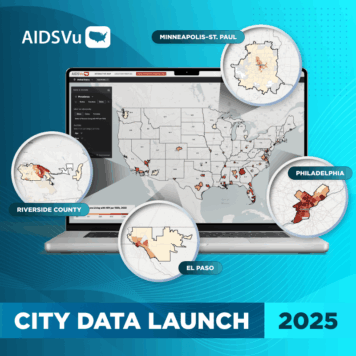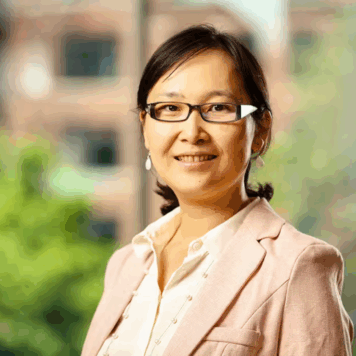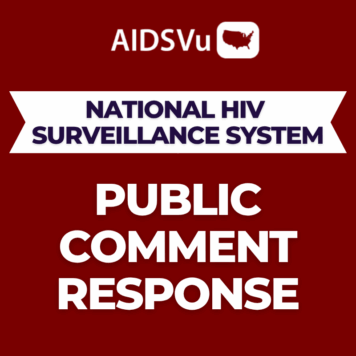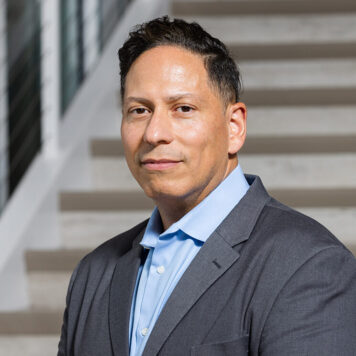Reverend Rob Newells is the Director of National Programs and Christopher Hucks-Ortiz, MPH, is the Director of HIV and Clinical Services, Los Angeles at the Black AIDS Institute.
Q: Can you describe the work you do at Black AIDS Institute (BAI) and what brought you to focus on HIV?
Rev. Newells: I serve as the Director of National Programs for Black AIDS Institute. A big piece of my work is leading the Black Treatment Advocates Network (BTAN), which has 16 chapters and 16 affiliates across the country, mostly in the Southern U.S. We provide training and support for local advocates to engage in public policy advocacy, community organizing, and Ending the HIV Epidemic efforts in their communities, in addition to our training capacity-building efforts at BAI. Our workforce education programs under the African American HIV University umbrella include a new HIV Biomedical Workforce Certificate Program, Brown Bag Lunch webinars, a planned re-launch of both our Science and Treatment College and Community Mobilization College, as well as the capacity-building assistance programs available to community-based organizations and health departments.
I got into this work because I had friends living with HIV when I first came out as a same-gender-loving Black man and saw that they needed a lot of support that wasn’t available. This was before we had highly effective therapies and I saw a lot of people suffer from HIV. Even though I wasn’t sexually active at the time, I really wanted to give back to the community and started working in the HIV space in 1999.
Christopher Hucks-Ortiz: I work at the Institute as the Director of HIV and Clinical Services, working in the Prevention and Care group. Along with our capacity-building work at BAI, we also provide direct services in Southern California.
We have a team of people who are involved in different aspects of strategy implementation, interventions and providing high-impact prevention services to reduce the burden of HIV among Black people living in Los Angeles. Our services include HIV testing, substance abuse screening, and treatment referrals. We also provide health navigation as well as peer and social support. Many of our services have gone virtual due to COVID-19, but they are continuing because people are still having sex, and may still need the services that we provide regarding HIV prevention.. The needs of people in our communities are still very salient throughout the pandemic.
My focus in HIV work started when I was in high school. From the very beginning of the epidemic, I saw that people in our communities were losing their homes and experiencing severe hardships during times they needed help the most. Witnessing those injustices made me want to find a way to address them. After several years as a volunteer, I eventually started working in the HIV space in the early 90s as an advocate and activist for the HIV community.
Q: Black Americans are disproportionately impacted by HIV and often experience poorer health outcomes compared to other races and ethnicities in the U.S. In 2018, Black Americans represented 42% of new HIV diagnoses, but only 13% of the population. What are the major systemic practices and policies that drive these HIV-related health disparities in the Black community?
Rev. Newells: The short answer is racism. All the challenges that the wider Movement for Black Lives seeks to address are issues that drive the HIV epidemic among Black communities. When it comes to HIV risk, it’s less about what you do and more about where you live. So, housing is a health care issue. If you are forced to live in a particular community, then your sexual network is in that community, which can drive up HIV infection rates. If you are food or housing insecure, you may consider sex work – which might become a risk factor. The root of all these problems is lack of information more than lack of access. Folks are not aware of their potential risks and don’t see themselves as at risk for any infection. Many people also must deal with so much more in their lives that feels more important than their sexual health. Bottom line: racism drives the structural factors that put Black people at higher risk for HIV infection.
Christopher Hucks-Ortiz: Racism has created structural barriers that influence and determine health outcomes. For example, it’s not about individual factors such as age, gender, genetics, diet, or number of sexual partners. It’s more about where a person is, and the political, social, and economic factors of inequality, poverty, and segregation around them that create these health disparities. It starts with inadequate engagement and care, such as a lack of free testing. If the communities that we live in are dealing with multi-generational, structural, and racial injustices, it directly impacts the HIV-related health disparities among Black communities. How will people know they’re living with HIV if they can’t get a test? Testing, treatment, and biomedical prevention should all be free and when it isn’t, that often impacts Black communities more.
Q: In January 2020, BAI released “We the People: A Black Strategy to End HIV,” a campaign to end the HIV epidemic by tackling the systematic oppression of Black communities. What are the core elements of the plan and how was it developed?
Rev. Newells: “We the People” has four major recommendations created in consultations with many Black experts in the field. First, dismantle anti-Black practices, systems, and institutions and be involved in the wider Movement for Black Lives. Second, provide resources and services that address the fullness and the expertise of Black folks. We must employ Black folks who have lived it to do this work and provide adequate resources to achieve our goals.
Third, ensure universal access to comprehensive health care. One of our goals this year is a Medicaid expansion campaign throughout the Southern U.S. The final recommendation is to build the capacity of Black communities to be their own agents of change. In 2021, BAI is aiming to address who the decision-makers and the organizations that serve our community look like. If they don’t look like us, why? How can we ensure fair representation by supporting our existing leadership within Black communities?
Christopher Hucks-Ortiz: I approach this work from the perspective of community-based participatory research, which starts and is centered on the needs of the community. Rather than begin with the construct of an outsider coming to save our communities, and it is focused on the need for Black people to be involved in the process to end HIV in our own communities. By informing the problems and developing interventions that are later analyzed to become evidence-based practices, we can create leadership to champion our community’s priorities.
BAI has been saying for years, “Our people, our problem, our solution.” To address these problems, we have to center the needs of Black people. We’ll never get rid of the current challenges around HIV if we don’t find ways to address racism and inequities that affect HIV.
Rev. Newells: Part of our work this year is also developing an action plan to accompany the “We the People” framework released last year. Similar to how the National HIV/AIDS Strategic Plan was followed six months later with the Federal Implementation Plan and the Community Action Plan, BAI is creating a plan that will list actions that every level of stakeholder can do to achieve the four recommendations of the framework.
Christopher Hucks-Ortiz: “We the People: A Black Stratgy to End HIV” is also integrated into our local programming. In a few weeks, we’ll be announcing a new policy research center based on the core principles of “We the People”. This center will explore policy research on ending HIV in Black and other communities of color.
Q: “We the People” addresses social and structural factors that contribute to inequities among Black Americans living with HIV. Can you speak to how the plan looks to dismantle anti-Black practices in HIV testing, care, and treatment in the U.S.?
Rev. Newells: A big piece of dismantling anti-Black practices requires reforms in leadership positions and funding streams for HIV programs, such as testing by community-based organizations. Another piece is the need for Medicaid expansion to cover preventative and universal health care to promote regular access to care, not just when you are sick. In addition to expanding access, training our medical professionals on anti-racist practices during medical school is also critical. There’s data that shows many medical students still believe Black people experience less pain. These are historic misconceptions that are carried through to this day. Our community’s health outcomes are better when they have Black providers.
All of this goes back to racism and its systemic policies that we have internalized. We have to make sure that Black people are at the decision-making tables, not just in community outreach positions but making decisions in funding and programs. This correlates with our fourth recommendation around engaging Black leadership to tear down these anti-Black policies from the inside and outside at the same time.
Christopher Hucks-Ortiz: I think about oppression and privilege and what that means in all aspects of HIV testing, treatment, prevention, and advocacy. It is not just important to be at the table, but we must be at the right tables. Having a place at the executive leadership table to design and develop public health programs with community inclusion, such as deciding which clinical research trials and grants get funded. We can find ways to address oppression and privilege in all these spaces. It starts at the leadership level and travels down to the on-the-ground outreach workers going door-to-door to engage people in these services.
Rev. Newells: Dismantling anti-Black hiring practices is something we’ve discussed with other organizations and we are beginning to make some progress. It starts with job descriptions and making sure they list the right number of skills and background required. If a job description says a master’s degree is required, is it actually required, or can somebody acquire those skills from a different background? Education is a privilege and there are many people of color that don’t have the privilege of formal education but are still very qualified for these jobs. This year, we’re tackling these issues around racial injustices in partnership with AIDS United and other advocacy organizations.
Q: February 7 is National Black HIV/AIDS Awareness Day, which serves as an opportunity to highlight the deep health disparities among Black Americans living with HIV in the U.S. What message do you have for the community on this day?
Christopher Hucks-Ortiz: For National Black HIV/AIDS Awareness Day (NBHAAD), I think that knowing your status, regardless of what it is, is one of the most loving things that you can do for yourself. People often associate poverty and other health disparities as part of the Black experience instead of being a result of the racist, economic, and capitalistic paradigm that we have here in the U.S. Black people are beautiful and our communities are wonderful. Know your status, get into care, consider biomedical prevention, and if you need support or assistance with any of these, reach out. HIV is a thing, but it’s not the only thing – it’s just a thing.
Rev. Newells: As we are beginning to come out of COVID-19, folks have been listening and thinking about vaccine development. My message this year for National Black HIV/AIDS Awareness Day is to trust the science – and not just the COVID-19 science. We have science about HIV treatment and prevention, such as undetectable equals untransmissible (U=U). We have oral pre-exposure prophylaxis (PrEP), which is at least as good, if not better than the COVID vaccines. We now have long-acting injectable treatment.
We are going through COVID-19 as a wider community and seeing its development was a crash course in clinical research and vaccine development. If you can trust the science and research around COVID-19, trust all the HIV science that has brought us so far in the last 30 years.




